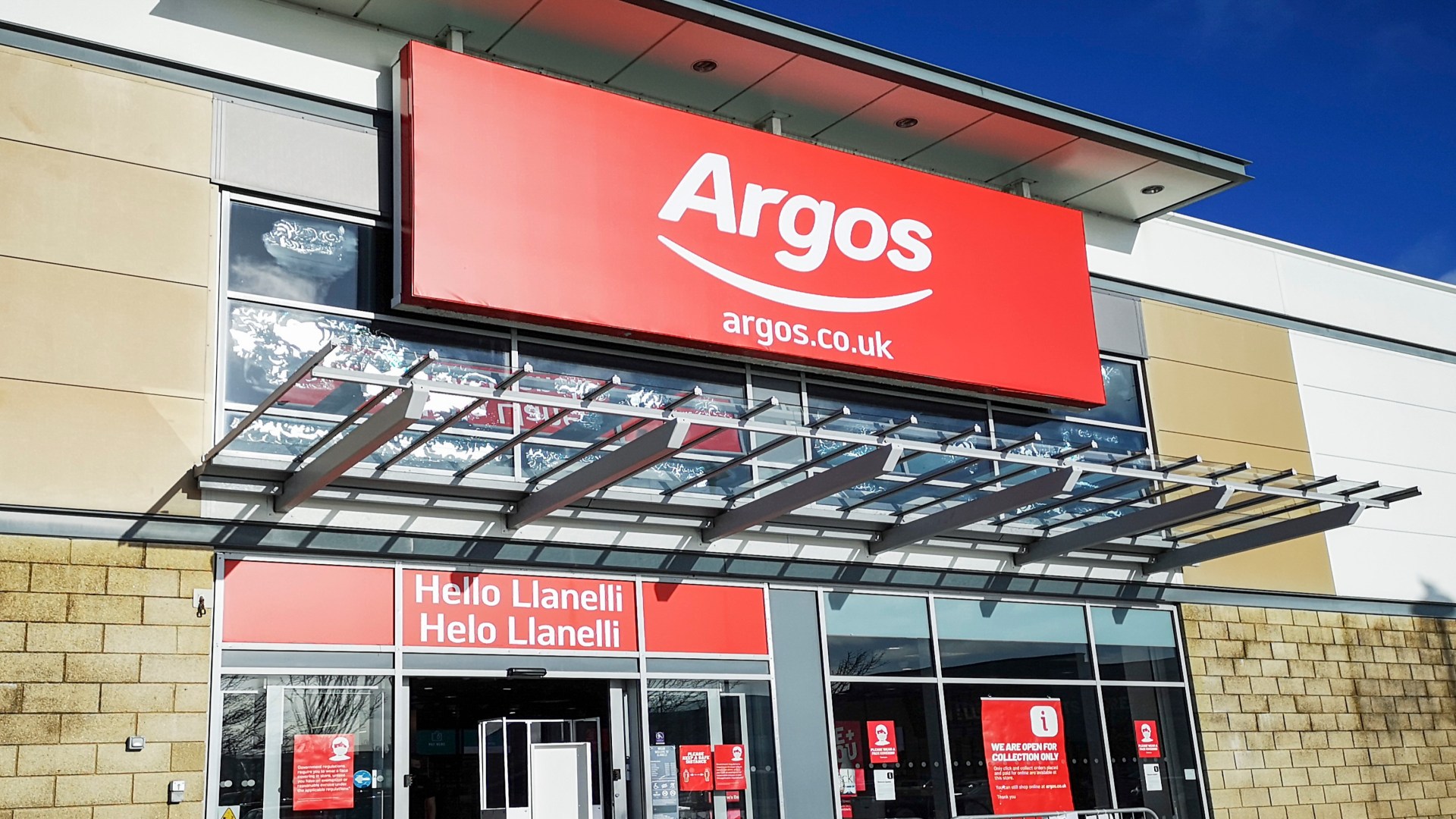Money
Firms in the dark on commercial pensions dashboards delivery date


Firms seeking to operate commercial pensions dashboards services (PDS) have no timescale when this will happen despite the Financial Conduct Authority publishing rules they must follow when designing and operating them.
FCA set out rules for pensions dashboards service firms in a policy statement published yesterday (7 Nov.)
They include expectations that firms will act “fairly, honestly and professionally in consumers’ best interests and deliver good consumer outcomes consistent with the Consumer Duty”.
And that the service firms offer “must be fit for purpose and help consumers make effective choices and act in their own interests”.
The FCA stressed that it wants PDS to be platforms where consumers can “confidently and positively engage with their pensions and be safely supported in retirement planning.”
It added that the rules, which were considered following consultations with stakeholders, are “proportionate” for the first iteration of commercial pensions dashboards.
However, FCA failed to give a timescale when firms will be able to operate pensions dashboards services.
Rachel Vahey, head of public policy at AJ Bell, said the lack of timescale is a “huge let down for customers”.
She said: “This statement is helpful but leaves the pensions industry with only a set of rules and no definitive timescale for when commercial dashboards will become a reality. Setting a clear date for commercial dashboards would allow providers to start planning in earnest. The development of dashboards has already been a bumpy ride with numerous stops and starts, and changes in who is responsible for getting it over the starting line.”
Earlier this year, the government changed the law to bring the new activity of operating a pension dashboard service within the FCA’s regulatory remit.
This legislative change means that a firm wishing to operate a PDS must become FCA authorised, get permission to undertake the new regulated activity and meet its requirements for firms undertaking this activity.
Last month Emma Reynolds, the pensions minister, confirmed that initially people will only be able to access their information by going through the Pensions Dashboard run by the government’s Money and Pension Service (MaPS).
Money
Asda, Primark, Sainsbury’s and M&S bosses issue urgent warning for shoppers as there’s ‘no magic money tree’

BOSSES of major retailers including Asda, Primark, Sainsbury’s and M&S have issued an urgent price rise warning.
Shoppers have been told to expect price increases after Chancellor Rachel Reeves announced a hike in employers’ National Insurance costs in last week’s Budget.
Retailers have said the tax raid will cost them millions of pounds and mean they have to look at cutting costs and rising prices.
Asda chairman Stuart Rose said the increase would cost the supermarket giant £100million, and inevitably lead to price increases at the checkout.
He explained: “You cannot absorb £100milion of cost. We don’t have a magic money tree in Leeds.”
The price rise warning followed that by Sainsbury’s chief executive Simon Roberts, who said the supermarket “just didn’t have the capacity to absorb this level of unexpected cost inflation”.
Mr Roberts predicted the National Insurance hike would cost the business £140million and added that it would “feed through into higher inflation”.
Wetherspoon boss Tim Martin said the pub giant would aim to remain competitive on pricing, but would see its tax bill rise by two-thirds next year.
Martin said: “Cost inflation, which had surged to high levels in 2022, gradually diminished over the subsequent two years.
“However, it has now significantly increased again following the Budget.
“All hospitality businesses, we believe, plan to increase prices, as a result.
“Wetherspoon will, as always, make every attempt to stay as competitive as possible.”
The pub giant predicted tax and business costs would increase by approximately £60million over the next year, including an estimated 67% rise in National Insurance contributions.
Wetherspoon’s warning on prices comes as M&S chief executive Stuart Machin also cautioned it was looking at a £120millin hit.
The retailer, which had reported a 20% increase in half-year profits, also said it would do “everything we can” to avoid passing on the extra burden to customers through price hikes.
The chief executive of Primark’s parent company Associated British Foods, George Weston, said he felt “the weight of tax rises” in the Budget was falling on the UK high street.
He said the company’s National Insurance bill would rise by “tens of millions” of pounds, but it would try to “hold prices”.
While Weston said Primark would not immediately look to price increases, he added that the increase in costs would prevent it from cutting prices as quickly as it would have hoped.
In the Budget, Rachel Reeves hiked the employer rate of National Insurance from 13.8% to 15%.
She also announced a reduction to the threshold at which businesses start paying NI contributions from £9,100 to £5,000.
It’s estimated that the move will raise £25billion – the equivalent of around £800 per employee for each firm.
Businesses were quick to warn that the increased financial burden would lead to higher operating costs, which may ultimately be passed on to consumers through price rises.
In the aftermath of the Budget Reeves also conceded that hard-working employees will be affected by their bosses playing more National Insurance.
What is the UK’s cheapest supermarket?
WE’RE all looking for ways to save on our supermarket shops. But which store should you go to if you’re on a strict budget?
According to Which?, who compare thousands of prices at the top eight UK supermarkets – Aldi, Asda, Lidl, Morrisons, Ocado, Sainsbury’s, Tesco and Waitrose – every month, there’s one place that outweighs the rest in terms of being budget-friendly.
In April 2024, Aldi was at the top of the list, with Which? comparing 67 popular groceries costing an average of £112.90.
Lidl isn’t far behind, at £115.23, followed by Asda in third place with a bill of £126.98.
Tesco was next, at £128.17, while Sainsbury’s rounded out the top five with £131.02.
Do you have a money problem that needs sorting? Get in touch by emailing money-sm@news.co.uk.
Plus, you can join our Sun Money Chats and Tips Facebook group to share your tips and stories
Money
Rightmove reports ‘softer’ than expected activity on new build homes

While Rightmove’s new homes developer partners are encouraged by the government policy support, new build activity remains softer than last year.
The post Rightmove reports ‘softer’ than expected activity on new build homes appeared first on Property Week.
Money
Sesame Bankhall acquires strategic stake in mortgage broker


Sesame Bankhall Group (SBG) has acquired a strategic stake in New Homes Mortgage Services (NHMS) LLP.
NHMS is the largest appointed representative mortgage and protection firm in SBG’s Sesame Network, of which it has been a member for almost 30 years.
The deal sees SBG acquire a significant stake in the 40-adviser strong business, with the option to increase the shareholding in the future.
This is the first advice firm investment since SBG launched its new business growth strategy under CEO Richard Harrison earlier this year.
The Cannock-based NHMS is a mortgage and protection advisory business specialising in the new build market.
It has 40 advisers and 80 employees and looks after the needs of 45,000 clients, with over £760m of mortgage lending and £1.4m of protection premiums annually.
While Richard Harrison will join the NHMS Board, the management team will remain unchanged, as will the roles and responsibilities of employees.
The news follows the recent announcement of a new strategic partnership between SBG’s PMS Mortgage Club and Bankhall businesses and intermediary platform Acre to jointly invest and create bespoke technology solutions for the Directly Authorised (DA) adviser market.
Harrison said: “The investment in New Homes Mortgage Services is a significant step in our own journey and a clear indication of our ambitious business strategy and commitment to grow and develop our adviser network and the wider Group, through both organic growth and investment in like-minded adviser businesses.
NHMS managing director, Stewart Bartle, added: “We have ambitious plans to grow the business, and this was a natural next step in our journey to enable us to do that.
“From day one, it was clear that Sesame Bankhall Group’s own adviser-led growth strategy and vision matched ours, making them the perfect partner to support our long-term aim to become the UK’s largest mortgage broker, helping more people to achieve their home ownership goals.”
Sesame Bankhall Group is wholly owned by Aviva and provides support services to financial advisers across the UK. It is currently home to over 10,000 advisers.
Money
Sainsbury’s issues major update on Argos store closure plans as nine more branches to disappear from the high street

SAINSBURY’S has issued a major update regarding the closure of more Argos stores.
The supermarket chain, which owns Argos, plans to shut nine more standalone locations in the upcoming financial year.
This move is part of an ongoing strategy to transition the brand’s presence from traditional high street stores to integrated concessions within Sainsbury’s supermarkets.
It comes as Sainsbury’s interim results released yesterday showed sales at Argos slipped by 5% in the 28 weeks to September 14.
Sainsbury’s general merchandise and clothing sales also declined by 1.5% during this period.
Argos’ owner added: “For the full financial year we expect to open 13 Argos stores within Sainsbury’s and close nine standalone stores.”
Sainsbury’s has not yet disclosed the locations of the next round of Argos store closures.
The company also stated that it has not yet informed employees at the stores that will be affected.
A spokesperson for Argos told The Sun: “The transformation of our Argos store and distribution network has been progressing at pace for several years now, improving availability, convenience and service for customers.”
“As part of this, we are continuing to open new Argos stores and collection points in many of our Sainsbury’s supermarkets, enabling customers to purchase thousands of technology, home and toy products from Argos while picking up their groceries.”
Argos has closed dozens of stores over the last two years.
Since March 2023, Sainsbury’s has reduced the number of standalone Argos stores by 72, down to 213 from 385.
However, it has increased the number of Argos stores within Sainsbury’s supermarkets by 22 – from 424 to 446.
The most recent closure occurred on October 17, when the Argos store in Plymouth city centre permanently shut its doors.
Before this, the Argos store in Greenock, Inverclyde, unexpectedly ceased operations on September 14.
Last year all 34 Argos stores in the Republic of Ireland were shut down.
The company blamed the closure of the stores on the investment required to develop and modernise the Irish part of its business as “not viable”.
HISTORY OF ARGOS

FOUNDED in 1972 by Richard Tompkins, Argos revolutionised the British retail landscape with its unique catalogue-based shopping model.
The first store opened in Canterbury, Kent and quickly expanded, becoming a household name.
Customers could browse the extensive Argos catalogue, fill out a purchase slip, and collect their items from the in-store collection point.
The retailer was sold to British American Tobacco Industries in 1979 for £32million before being demerged and listed on the London Stock Exchange in 1990.
In April 1998, the company was acquired by GUS plc.
Throughout the decades, Argos adapted to changing consumer habits, embracing e-commerce early on and launching its website in 1999.
This allowed customers to reserve items online for in-store pick-up, blending the convenience of digital shopping with the immediacy of physical retail.
By 2006, Argos became part of the Home Retail Group which was demerged from its parent GUS plc.
At the time, Home Retail Group also owned Homebase and Habitat.
In 2016, Argos, along with its Home Retail Group sister brand Habitat, was acquired by Sainsbury’s.
Since the acquisition, the Argos brand has been integrated into Sainsbury’s operations, significantly expanding its presence through dedicated concessions within Sainsbury’s supermarkets across the UK.
However, due to declining sales, Sainsbury’s discontinued Argos’ iconic printed catalogue in 2020.
Despite these setbacks, Argos has remained true to its roots, offering a wide range of products from toys and electronics to furniture and jewellery.
SALES UP AT SAINSBURY’S
Despite a decline in sales for both Argos and Sainsbury’s general merchandise and clothing, grocery sales surged by 5% in the 28 weeks leading up to September 14.
The retailer said it was boosted by strong Taste the Difference premium range sales and Nectar membership pricing.
Simon Roberts, chief executive of Sainsbury’s, said: “Our food business is going from strength to strength and we’re making the biggest market share gains in the industry, with continued strong volume growth.
“More and more customers are coming to us for their big food shop, recognising our winning combination of value, quality and service.
“As we head into the festive season, there is real energy and excitement at Sainsbury’s and Argos, and we’re expecting another strong performance.”
Sainsbury’s total underlying pre-tax profit was up 4.7% to £356million.
The supermarket chain is also expected to open 13 new supermarkets in the coming months.
Ten of these new stores, scheduled to open soon, were acquired from DIY retailer Homebase, while the remaining three were purchased from Co-op Food.
However, the boss of the supermarket giant also warned that shoppers will face higher food prices after the Budget’s tax raid on employers.
PRICES TO RISE
Last week, Rachel Reeves hiked the employer rate of National Insurance (NI) from 13.8% to 15%.
She also announced a reduction to the threshold at which businesses start paying NI contributions from £9,100 to £5,000.
It’s estimated that the move will raise £25billion – the equivalent of around £800 per employee for each firm.
Businesses, particularly within the hospitality sector, have warned that the increased financial burden could lead to higher operating costs, which may ultimately be passed on to consumers through price rises.
Mr Roberts said the NI hike would cost Sainsbury’s an extra £140million.
His comments come after Wetherspoons and Marks & Spencer warned of a combined £160million hit from the Chancellor’s decision to increase employer contributions.
Mr Roberts said: “It will lead to inflation and it’s pretty clear it’s going to come pretty fast.
“Given the low margins of the industry, there isn’t the capacity to absorb this level of unexpected cost inflation.”
Asda has also warned about rising prices.
The Entertainer has scrapped plans to open two new stores due to the extra costs associated with the NIC hike.
On Tuesday, the chief executive of Primark’s parent company, Associated British Foods, said he felt “the weight of tax rises” in the Budget was falling on the UK high street.
The Office for Budget Responsibility (OBR) also said last week that the Treasury’s sharp increase in spending would lead to higher inflation in the coming months.
Despite official figures from October showing that inflation fell to 1.7%, its lowest level since April 2021, the OBR expects inflation to average 2.5% this year and 2.6% next year.
INFLATION MATTERS
INFLATION is a measure of the cost of living. It looks at how much the price of goods, such as food or televisions, and services, such as haircuts or train tickets, has changed over time.
Usually people measure inflation by comparing the cost of things today with how much they cost a year ago. The average increase in prices is known as the inflation rate.
The government sets an inflation target of 2%.
If inflation is too high or it moves around a lot, the Bank of England says it is hard for businesses to set the right prices and for people to plan their spending.
High inflation rates also means people are having to spend more, while savings are likely to be eroded as the cost of goods is more than the interest we’re earning.
Low inflation, on the other hand, means lower prices and a greater likelihood of interest rates on savings beating the inflation rate.
But if inflation is too low some people may put off spending because they expect prices to fall. And if everybody reduced their spending then companies could fail and people might lose their jobs.
See our UK inflation guide and our Is low inflation good? guide for more information.
Money
Workspace sells west London redevelopment site for £20m

Site with consent for residential and light industrial redevelopment was sold for £1m below March book value.
The post Workspace sells west London redevelopment site for £20m appeared first on Property Week.
Money
FCA investigation offers a new hope for protection

 After many years of the regulatory equivalent of a Gaelic shrug towards the protection market, the Financial Conduct Authority has announced a forthcoming study into the sector taking in many areas, perhaps most notably, the three Cs: commission, competition and charging.
After many years of the regulatory equivalent of a Gaelic shrug towards the protection market, the Financial Conduct Authority has announced a forthcoming study into the sector taking in many areas, perhaps most notably, the three Cs: commission, competition and charging.
Understandably, this has set many boardrooms a flutter, as the market’s biggest and best advisers, distributors and providers begin to consider the impact of the study and its findings on their business model.
There will be some who are fearful. Any action from the regulator tends to cause worry. Some are thankful, having been calling for an increase in engagement in protection from the regulator for some time.
There are always processes that can be done better, to deliver better products, better services and better outcomes to customers
There are others, like me, who are hopeful. Hopeful that this study will once and for all shine the light on protection that I, and many others like me, think it deserves.
Name a perfectly functioning market and I’ll prepare to be astounded. Nowhere across financial services, retail and beyond will you find a market perfectly in sync with its customers or internal market stakeholders.
There are always processes that can be done better, to deliver better products, better services and better outcomes to customers.
The fast-food market could easily reduce salt, sugar and fat in its foods and maintain its revenues and standing. Indeed, the sugar tax on soft drinks has proven it possible. But it is yet far from common practice.
The UK is one of – if not the – most price-competitive market in the world. We offer cover at a low price – some might say too low
Closer to home, the general insurance market could, despite regulatory intervention in recent years, ensure all its products deliver value for money on an ongoing basis.
Protection, too, has aspects that could be changed to improve the market and the outcomes it delivers customers. Products could be simpler to understand and deploy to underserved markets. Cover could be more in keeping with modern changing lives – able to flex according to circumstances. Processes at application and claim could be improved from those which, today, are often still legacy; often manual and sometimes opaque.
However, there is masses to celebrate, too. The UK is one of – if not the – most price-competitive market in the world. We offer cover at a low price – some might say too low. We are also continually seeing providers entering new channels and new product lines – helping drive more choice.
This is the growth we need. This is the growth a financially resilient society needs
We have come a long way on process simplicity, too. Yes, we have more to do but insurers, distributors and advisers now have better, more streamlined processes to serve their protection clients – from sourcing the right product at the right premium to accessing GP helplines from the growing set of value-added benefits, now included as standard within most policies.
This, in itself, should be celebrated – providers have made the important step to offer more holistic, ‘always-on’ policies capable of delivering value even when their core purpose (to cover a claim) isn’t required.
Let’s not lose sight of these facts and continue to share them, both together and in public. A connected market is a better market. A positive discourse is better than a negative discourse. Let’s celebrate the things we do well, in private and in public.
As we begin to predict what the study will focus on and what the outcomes for the market will be, I remain hopeful. Ours is a market which performs an important role in society, a role we should ensure we and those who engage with it always appreciate.
Like most markets, there are things we could do better. Many of these things would help us, not necessarily to do more for our customers but to do the same for more customers. This is the growth we need. This is the growth a financially resilient society needs.
Let’s celebrate protection.
Paul Yates is product strategy director at iPipeline
-

 Science & Environment2 months ago
Science & Environment2 months agoHow to unsnarl a tangle of threads, according to physics
-

 Technology1 month ago
Technology1 month agoIs sharing your smartphone PIN part of a healthy relationship?
-

 Science & Environment2 months ago
Science & Environment2 months agoHyperelastic gel is one of the stretchiest materials known to science
-

 Science & Environment2 months ago
Science & Environment2 months ago‘Running of the bulls’ festival crowds move like charged particles
-

 Technology2 months ago
Technology2 months agoWould-be reality TV contestants ‘not looking real’
-

 Science & Environment1 month ago
Science & Environment1 month agoX-rays reveal half-billion-year-old insect ancestor
-

 Sport1 month ago
Sport1 month agoAaron Ramsdale: Southampton goalkeeper left Arsenal for more game time
-

 Money1 month ago
Money1 month agoWetherspoons issues update on closures – see the full list of five still at risk and 26 gone for good
-

 MMA1 month ago
MMA1 month ago‘Dirt decision’: Conor McGregor, pros react to Jose Aldo’s razor-thin loss at UFC 307
-

 Science & Environment2 months ago
Science & Environment2 months agoPhysicists have worked out how to melt any material
-

 Science & Environment2 months ago
Science & Environment2 months agoMaxwell’s demon charges quantum batteries inside of a quantum computer
-

 Science & Environment2 months ago
Science & Environment2 months agoSunlight-trapping device can generate temperatures over 1000°C
-

 Football1 month ago
Football1 month agoRangers & Celtic ready for first SWPL derby showdown
-

 News1 month ago
News1 month agoWoman who died of cancer ‘was misdiagnosed on phone call with GP’
-

 Science & Environment2 months ago
Science & Environment2 months agoLaser helps turn an electron into a coil of mass and charge
-
Business1 month ago
how UniCredit built its Commerzbank stake
-

 News1 month ago
News1 month ago‘Blacks for Trump’ and Pennsylvania progressives play for undecided voters
-

 Technology1 month ago
Technology1 month agoUkraine is using AI to manage the removal of Russian landmines
-

 Technology1 month ago
Technology1 month agoGmail gets redesigned summary cards with more data & features
-

 Science & Environment2 months ago
Science & Environment2 months agoA new kind of experiment at the Large Hadron Collider could unravel quantum reality
-

 Science & Environment2 months ago
Science & Environment2 months agoLiquid crystals could improve quantum communication devices
-

 Science & Environment2 months ago
Science & Environment2 months agoWhy this is a golden age for life to thrive across the universe
-

 Technology1 month ago
Technology1 month agoSamsung Passkeys will work with Samsung’s smart home devices
-

 Sport1 month ago
Sport1 month agoBoxing: World champion Nick Ball set for Liverpool homecoming against Ronny Rios
-

 Technology1 month ago
Technology1 month agoEpic Games CEO Tim Sweeney renews blast at ‘gatekeeper’ platform owners
-

 Science & Environment2 months ago
Science & Environment2 months agoQuantum ‘supersolid’ matter stirred using magnets
-

 Technology1 month ago
Technology1 month agoRussia is building ground-based kamikaze robots out of old hoverboards
-

 Sport1 month ago
Sport1 month ago2024 ICC Women’s T20 World Cup: Pakistan beat Sri Lanka
-

 News1 month ago
News1 month agoMassive blasts in Beirut after renewed Israeli air strikes
-

 Entertainment1 month ago
Entertainment1 month agoBruce Springsteen endorses Harris, calls Trump “most dangerous candidate for president in my lifetime”
-

 MMA1 month ago
MMA1 month agoDana White’s Contender Series 74 recap, analysis, winner grades
-

 News1 month ago
News1 month agoNavigating the News Void: Opportunities for Revitalization
-

 Technology1 month ago
Technology1 month agoMicrosoft just dropped Drasi, and it could change how we handle big data
-

 MMA1 month ago
MMA1 month agoPereira vs. Rountree prediction: Champ chases legend status
-

 MMA1 month ago
MMA1 month ago‘Uncrowned queen’ Kayla Harrison tastes blood, wants UFC title run
-

 Technology1 month ago
Technology1 month agoMicrophone made of atom-thick graphene could be used in smartphones
-

 Technology1 month ago
Technology1 month agoCheck, Remote, and Gusto discuss the future of work at Disrupt 2024
-

 Sport1 month ago
Sport1 month agoWXV1: Canada 21-8 Ireland – Hosts make it two wins from two
-

 News1 month ago
News1 month agoRwanda restricts funeral sizes following outbreak
-
Business1 month ago
Top shale boss says US ‘unusually vulnerable’ to Middle East oil shock
-

 Business1 month ago
Business1 month agoWater companies ‘failing to address customers’ concerns’
-

 Technology1 month ago
Technology1 month agoSingleStore’s BryteFlow acquisition targets data integration
-

 TV1 month ago
TV1 month agoসারাদেশে দিনব্যাপী বৃষ্টির পূর্বাভাস; সমুদ্রবন্দরে ৩ নম্বর সংকেত | Weather Today | Jamuna TV
-

 Science & Environment2 months ago
Science & Environment2 months agoQuantum forces used to automatically assemble tiny device
-

 Technology1 month ago
Technology1 month agoWhy Machines Learn: A clever primer makes sense of what makes AI possible
-

 News2 months ago
News2 months ago▶️ Hamas in the West Bank: Rising Support and Deadly Attacks You Might Not Know About
-

 Technology2 months ago
Technology2 months agoMeta has a major opportunity to win the AI hardware race
-

 News1 month ago
News1 month agoCornell is about to deport a student over Palestine activism
-

 Business1 month ago
Business1 month agoWhen to tip and when not to tip
-

 MMA1 month ago
MMA1 month agoKayla Harrison gets involved in nasty war of words with Julianna Pena and Ketlen Vieira
-

 News1 month ago
News1 month agoHull KR 10-8 Warrington Wolves – Robins reach first Super League Grand Final
-

 Science & Environment2 months ago
Science & Environment2 months agoITER: Is the world’s biggest fusion experiment dead after new delay to 2035?
-

 Science & Environment2 months ago
Science & Environment2 months agoNuclear fusion experiment overcomes two key operating hurdles
-

 Football1 month ago
Football1 month ago'Rangers outclassed and outplayed as Hearts stop rot'
-

 MMA1 month ago
MMA1 month agoPennington vs. Peña pick: Can ex-champ recapture title?
-

 Technology1 month ago
Technology1 month agoLG C4 OLED smart TVs hit record-low prices ahead of Prime Day
-
Travel1 month ago
World of Hyatt welcomes iconic lifestyle brand in latest partnership
-

 Sport1 month ago
Sport1 month agoShanghai Masters: Jannik Sinner and Carlos Alcaraz win openers
-

 Science & Environment2 months ago
Science & Environment2 months agoA slight curve helps rocks make the biggest splash
-

 Technology1 month ago
Technology1 month agoUniversity examiners fail to spot ChatGPT answers in real-world test
-

 Sport1 month ago
Sport1 month agoPremiership Women’s Rugby: Exeter Chiefs boss unhappy with WXV clash
-

 News1 month ago
News1 month ago▶ Hamas Spent $1B on Tunnels Instead of Investing in a Future for Gaza’s People
-

 Sport1 month ago
Sport1 month agoChina Open: Carlos Alcaraz recovers to beat Jannik Sinner in dramatic final
-

 Football1 month ago
Football1 month agoWhy does Prince William support Aston Villa?
-

 Money1 month ago
Money1 month agoTiny clue on edge of £1 coin that makes it worth 2500 times its face value – do you have one lurking in your change?
-

 Technology1 month ago
Technology1 month agoMusk faces SEC questions over X takeover
-

 Sport1 month ago
Sport1 month agoSturm Graz: How Austrians ended Red Bull’s title dominance
-

 Sport1 month ago
Sport1 month agoCoco Gauff stages superb comeback to reach China Open final
-

 Science & Environment2 months ago
Science & Environment2 months agoNerve fibres in the brain could generate quantum entanglement
-

 Womens Workouts2 months ago
Womens Workouts2 months ago3 Day Full Body Women’s Dumbbell Only Workout
-
Business1 month ago
Bank of England warns of ‘future stress’ from hedge fund bets against US Treasuries
-

 Technology1 month ago
Technology1 month agoQuoroom acquires Investory to scale up its capital-raising platform for startups
-
Business1 month ago
Italy seeks to raise more windfall taxes from companies
-

 MMA1 month ago
MMA1 month ago‘I was fighting on automatic pilot’ at UFC 306
-

 Sport1 month ago
Sport1 month agoURC: Munster 23-0 Ospreys – hosts enjoy second win of season
-

 MMA1 month ago
MMA1 month agoHow to watch Salt Lake City title fights, lineup, odds, more
-

 TV1 month ago
TV1 month agoTV Patrol Express September 26, 2024
-

 News1 month ago
News1 month agoGerman Car Company Declares Bankruptcy – 200 Employees Lose Their Jobs
-

 News1 month ago
News1 month agoHarry vs Sun publisher: ‘Two obdurate but well-resourced armies’
-

 Sport1 month ago
Sport1 month agoNew Zealand v England in WXV: Black Ferns not ‘invincible’ before game
-

 Sport1 month ago
Sport1 month agoWales fall to second loss of WXV against Italy
-

 Science & Environment2 months ago
Science & Environment2 months agoTime travel sci-fi novel is a rip-roaringly good thought experiment
-

 Science & Environment2 months ago
Science & Environment2 months agoHow to wrap your mind around the real multiverse
-

 News2 months ago
News2 months ago▶️ Media Bias: How They Spin Attack on Hezbollah and Ignore the Reality
-
Business1 month ago
DoJ accuses Donald Trump of ‘private criminal effort’ to overturn 2020 election
-

 Technology1 month ago
Technology1 month agoJ.B. Hunt and UP.Labs launch venture lab to build logistics startups
-

 Technology1 month ago
Technology1 month agoAmazon’s Ring just doubled the price of its alarm monitoring service for grandfathered customers
-
Business1 month ago
Sterling slides after Bailey says BoE could be ‘a bit more aggressive’ on rates
-
Business1 month ago
‘Let’s be more normal’ — and rival Tory strategies
-

 Technology1 month ago
Technology1 month agoThe best shows on Max (formerly HBO Max) right now
-

 Technology4 weeks ago
Technology4 weeks agoNintendo’s latest hardware is not the Switch 2
-

 Football1 month ago
Football1 month agoFifa to investigate alleged rule breaches by Israel Football Association
-
Business1 month ago
The search for Japan’s ‘lost’ art
-

 MMA1 month ago
MMA1 month agoKetlen Vieira vs. Kayla Harrison pick, start time, odds: UFC 307
-

 Technology1 month ago
Technology1 month agoIf you’ve ever considered smart glasses, this Amazon deal is for you
-

 News1 month ago
News1 month agoTrump returns to Pennsylvania for rally at site of assassination attempt
-

 MMA1 month ago
MMA1 month agoKevin Holland suffers injury vs. Roman Dolidze
-

 Sport1 month ago
Sport1 month agoAmerica’s Cup: Great Britain qualify for first time since 1964
-

 Sport1 month ago
Sport1 month agoFans say ‘Moyes is joking, right?’ after his bizarre interview about under-fire Man Utd manager Erik ten Hag goes viral
-

 MMA1 month ago
MMA1 month agoUFC 307’s Ketlen Vieira says Kayla Harrison ‘has not proven herself’



You must be logged in to post a comment Login